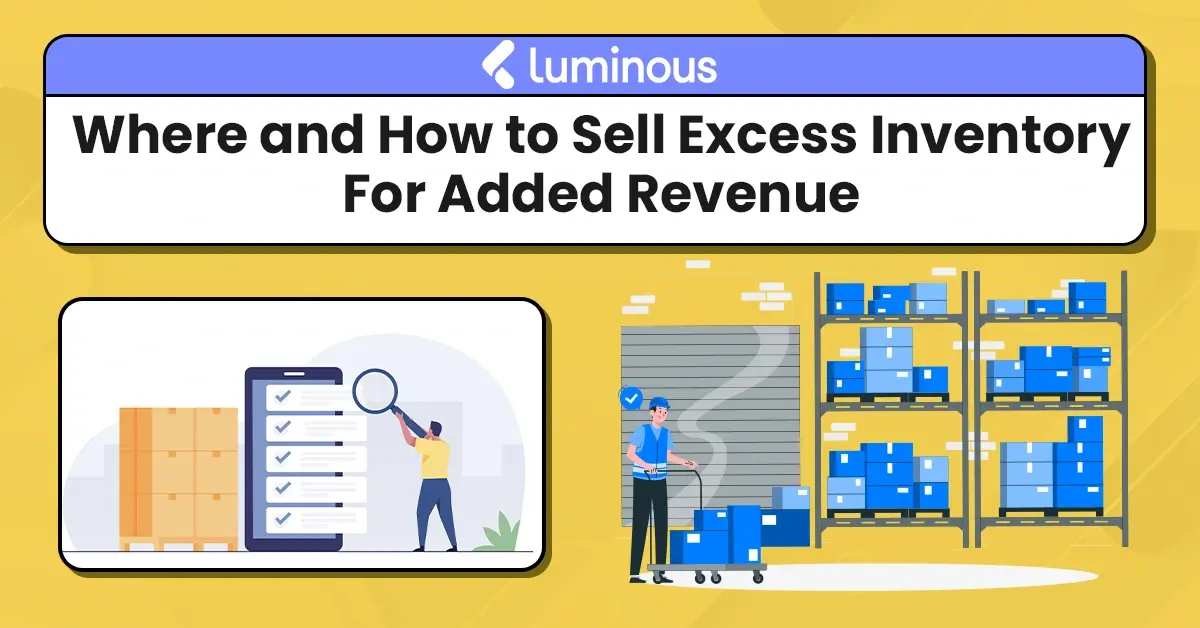Where and How to Sell Excess Inventory For Added Revenue

Introduction
Excess inventory can be called by several names, including overstock, surplus, and obsolete inventory. Excess inventory can have a significant impact on a business's profitability. When a business holds onto too much inventory, it can tie up valuable cash and resources, which can lead to missed opportunities and decreased profitability. In this article, we will explore the impact of excess inventory on profitability, how to calculate excess inventory, and strategies for managing excess inventory to improve your business's bottom line.
How does excess inventory affect your profitability?
Excess inventory can have a negative impact on profitability in several ways:
- Ties up cash: Holding onto excess inventory ties up valuable cash that could be used for other business needs, such as marketing or investing in new products or services.
- Wasted resources: Storing excess inventory requires space and resources, which can be costly and inefficient.
- Opportunity cost: By holding onto excess inventory, businesses may miss out on opportunities to invest in other areas of the business, such as research and development or marketing.
How does inventory impact revenue?
The relationship between revenue and inventory is complex, as it depends on a variety of factors, such as the industry, the type of inventory, and the demand for products. Generally, revenue is affected by inventory turnover and holding costs. It is important to balance inventory levels and sales to maximize revenue and profitability.
Inventory can impact revenue in several ways:
- Cash flow: Inventory ties up cash that could be used for other business needs.
- Holding costs: Holding onto inventory can be expensive, as it requires resources such as storage space and utilities.
- Lost sales: If inventory is not managed properly, it can lead to lost sales if products are out of stock or if customers go elsewhere due to long lead times.
What is the disadvantage of excess inventory?
Excess inventory can cause a range of costs that can negatively impact a business's profitability, including:
- Storage costs - holding excess inventory requires additional space, which can be costly for a business.
- Obsolescence costs - when products become outdated, they become difficult to sell, resulting in losses for the business.
- Write-off costs - when products become unsellable, they must be written off, resulting in a loss of revenue for the business.
These costs can significantly reduce a business's profitability, making it essential to manage excess inventory.
How do you calculate excess inventory?
To calculate excess inventory, use the following formula:
Excess inventory = (Actual inventory - Target inventory) / Actual inventory
Factors that contribute to excess inventory include:
- Overforecasting demand
- Inaccurate inventory management
- Slow-moving products
- Obsolete products
- Seasonal fluctuations
What should a business owner do with excess inventory?
Business owners have several strategies for managing excess inventory:
- Liquidation - selling excess inventory at a discount is a common strategy for reducing excess inventory levels and generating revenue.
- Donation - donating excess inventory to charitable organizations can provide tax benefits while also helping the community.
- Repurposing - finding alternative uses for excess inventory, such as using it for marketing promotions, can help businesses generate added revenue.
It's also important for business owners to monitor their inventory levels and sales to prevent future overstock situations.
Conclusion
Excess inventory can be considered an asset or a liability, depending on how it is managed. Proper inventory management is critical to ensuring that excess inventory does not become a liability and negatively impact profitability.
In conclusion, excess inventory can have a significant impact on a business's profitability. By understanding the costs associated with excess inventory and implementing effective management strategies, businesses can reduce the negative impact of excess inventory and generate added revenue. By taking a proactive approach to managing inventory levels, businesses can position themselves for long-term success.

